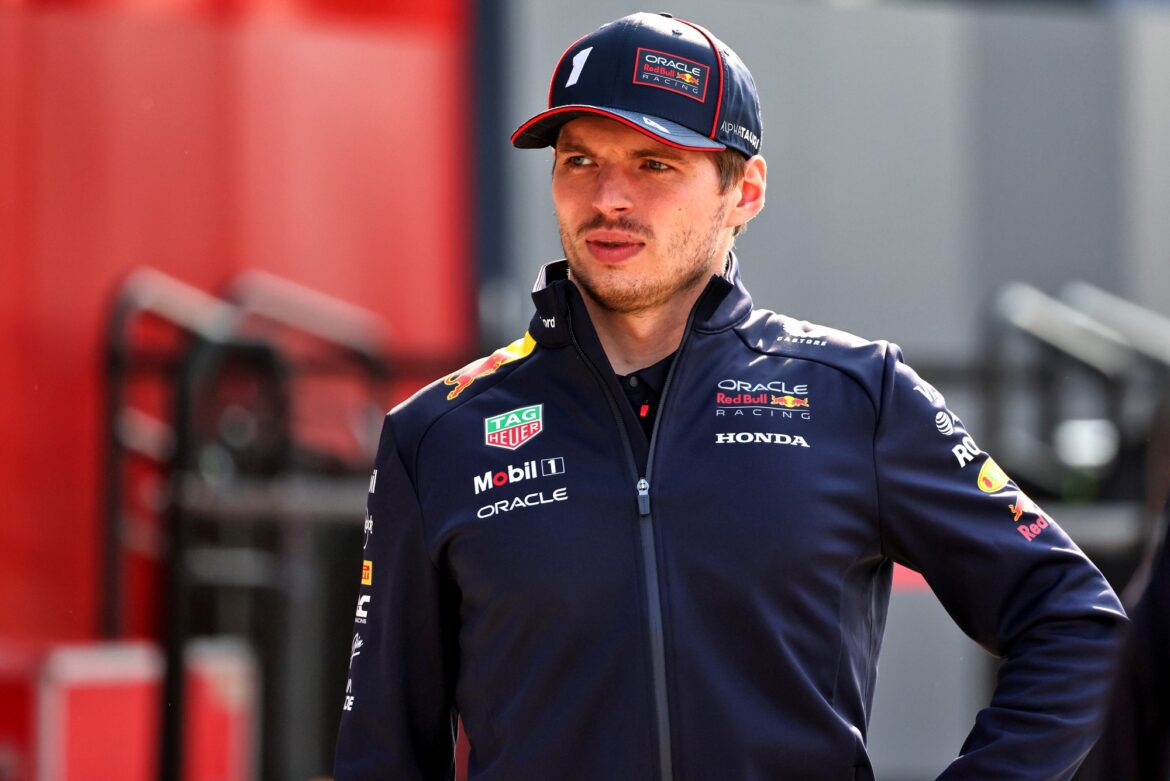Max Verstappen, the Dutch racing driver and reigning Formula 1 champion, recently opted not to comment on the penalty he received during the Saudi Arabian Grand Prix. Following the race, he expressed that sharing his true thoughts could result in further sanctions against him. The incident unfolded in Jeddah, where Verstappen found himself in a close competition with Oscar Piastri right after the race commenced. As the cars approached Turn 1, both drivers entered the corner side by side, with Verstappen eventually leaving the track during the first two corners. Upon re-entering the track, he managed to retain his lead, which the race officials determined had given him an unfair advantage, leading to a five-second penalty. Ultimately, Verstappen finished the race in second place.
Verstappen’s cautious approach to discussing his penalty highlights the complexities that come with media interactions, especially in the high-stakes world of Formula 1. He commented, “The issue is that I can’t share my opinion on this because I might also get penalized, so it’s better not to say anything. I think it’s best to remain silent on this matter. Anything I say or attempt to express could lead to more issues.” His reluctance to engage in a dialogue about the incident reflects a broader concern about how public statements can be misinterpreted or taken out of context.
In today’s digital age, where social media plays a significant role in shaping public perception, Verstappen is wary of the potential backlash that could arise from his words. He further elaborated, “It has to do with social media in general and the way the world is evolving. I prefer to keep my comments minimal because sometimes your words can be twisted, or people interpret them differently. Honestly, it’s better for me to stay quiet. That’s the approach I’m trying to take.”
The sensitivity surrounding public discourse is becoming increasingly pronounced, especially for athletes who find themselves under the scrutiny of fans, media, and regulatory bodies. Verstappen noted, “You can’t voice your opinion because it isn’t well-received, apparently, or people can’t handle the full truth.” This acknowledgment of the precarious nature of public speaking in sports suggests that athletes today navigate a minefield when it comes to expressing their views.
The Dutch driver continued, emphasizing the need for discretion in his statements: “Honestly, it’s better if I don’t say much. It saves me time because we already have so much to do. This is how things are evolving. Everyone is overly sensitive about everything. Given our current climate, we can’t be critical in any way. So, less talking is better for me. I know I can’t use certain language here, but at the same time, you can’t be critical in any way that might ‘harm’ or ‘endanger’… Let me grab the paper,” he added, alluding to the complexities of navigating media relationships.
Verstappen’s reflections underscore a larger trend in professional sports, where athletes are increasingly cautious about their public statements. The fear of repercussions, whether through fines, penalties, or damage to one’s reputation, looms large over many in the industry. This growing trend of caution stems not only from the immediate consequences of a poorly phrased comment but also from the long-term impact on an athlete’s career and legacy.
In Formula 1, where the stakes are incredibly high and the competition intense, the way a driver handles media interactions can significantly affect their public image and personal brand. Verstappen’s case is a telling example of how drivers must strike a delicate balance between transparency and self-preservation. His decision to withhold his thoughts on the penalty illustrates a broader culture of self-censorship that many athletes are adopting to protect themselves from potential fallout.
The incident in Jeddah also sheds light on the broader implications of race regulations and how they are enforced. Verstappen’s experience raises questions about the clarity and fairness of the rules governing racing conduct. While penalties are a crucial part of maintaining order and safety on the track, the nuances of each situation can often lead to controversial outcomes, leaving drivers like Verstappen in a challenging position. The enforcement of rules must be consistent and transparent to ensure that all competitors are treated fairly and that the integrity of the sport is upheld.
Moreover, Verstappen’s comments highlight the evolving relationship between athletes and the media. With the rise of social media platforms, the dynamics of communication have shifted dramatically. Athletes are no longer just responding to traditional media outlets; they are also confronted with a landscape where fans can voice their opinions and reactions instantly. This instantaneous feedback loop can amplify concerns, leading athletes to think twice before making public statements.
As Verstappen navigates his career in Formula 1, he is not only focused on competing against the best drivers in the world but also managing the complexities of public perception and media relations. His reluctance to discuss the penalty in detail serves as a reminder that, for many athletes, the pressure to perform is matched by the pressure to communicate effectively in a world that often prioritizes sensationalism over nuance.
In conclusion, Verstappen’s experience at the Saudi Arabian Grand Prix illustrates the intricate relationship between racing, regulations, and media interaction. As he contemplates the implications of his words and the potential for penalties, it becomes clear that the world of Formula 1 is as much about strategy on the track as it is about managing public perception off it. The careful navigation of these waters is essential for maintaining both competitive integrity and personal reputation in the fast-paced and ever-evolving realm of motorsport.
